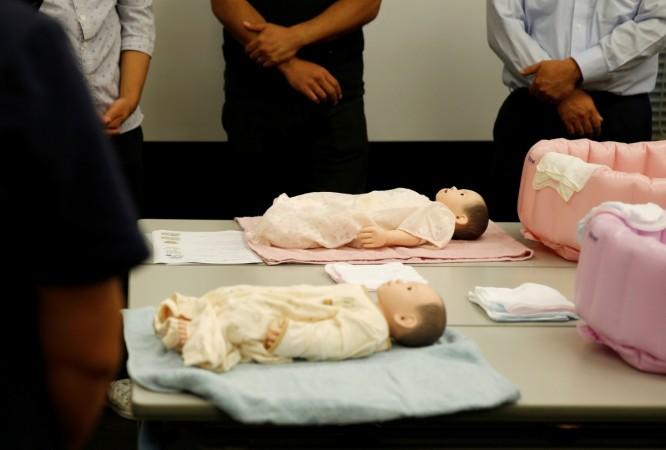
Japan is facing a unique crisis. The country's population is plunging at a dramatic pace and as opposed to what theorists such as Malthus suggested, the decline is not due to famine, war, disease or natural disaster. The most plausible explanation is that as women assert their independence, marriage becomes a hindrance as social pressure stigmatises mothers and negatively affects their employment prospects.
Here's some data that indicates the decline:
- The number of people in Japan who are 65 years old or older rose to a record 34.61 million, accounting for 27.3 percent of the nation's population according to recent government statistics.
- By 2060, almost half of Japan's residents are expected to be 60 or over.
- Nearly half of the millennials in Japan are virgins, according to a Japanese survey.
Taking note of the issue Prime Minister of Japan Shinzo Abe, who has vowed to fight against the declining birthrate, has made it a priority to up the birth rate to 1.8 children per woman from a rate of just 1.4. He has also encouraged men to take more-active roles in child-rearing under a campaign dubbed as the "Ikumen Project," which translates to men raising children. Just 1.9 percent of Japanese men took paternity leave in 2012, according to figures from the government's Cabinet Office. The goal of campaigns such as Ikumen is to raise the figure to 13 percent by 2020.
This campaign has also inspired unique business ideas -- Osaka-based company Ikumen University aims to help bachelors actively seeking partners portray themselves as marriage-worthy.
The course involves learning how to bathe and dress a baby, as well as how to — according to the course organisers— understand a woman's perspective on child-rearing through exercises such as wearing a seven-kilogram pregnancy jacket, the company said.
Participants were also taught how to improve spousal communication, and were asked to fill out a worksheet stating traits women were deemed to dislike in men.
"I wanted to create a form of certification proving a man's child-rearing skills and support for married life. Matchmaking agencies can advertise such men as having 'extra value', by letting potential partners know he will support the marriage.I think we need to change the Japanese mindset of men equal work, and women equal child-rearing," Takeshi Akiyama, head of Ikumen University and the course instructor, told Reuters.
The day-long Ikumen course was the first of its kind to be held in Tokyo and was priced at 30,000 yen ($390). Here are some pictures of the event:















